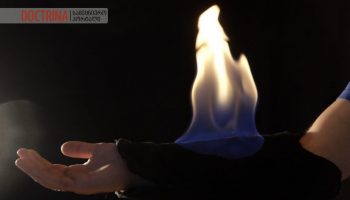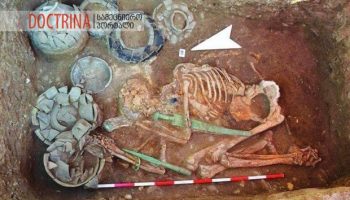The programme on “Teaching Georgian as a Foreign Language” is being developed at the Ministry of Education and Science of Georgia. The teaching and methodological e-materials which are developed within the program, provide a full package of teaching and learning the Georgian as a foreign language for students and teachers. The program is being implemented in cooperation with the Language Policy Division of the Council of Europe (LPD) and in accordance with the general European linguistic competence.
Scientific portal “Doctrina” has interviewed Marika Odzeli, the author and the head of the programme.
-There are a lot of analogical programmes in the various countries of the world, but it’s unprecedented one in Georgia. How the idea came up and what triggered the development of a platform in our country?
–Several years ago we developed the European Language Portfolio (ELP), which includes linguistic competence, both in native and foreign languages. Primarily, it was intended for ethnic minorities living in Georgia who were interested in learning the Georgian language. Later, in 2012, the fragments, methods or approaches, offered by the program, encouraged the first standard of the “Georgian as a Foreign Language”. Until 2012 there was neither level nor frequency based vocabulary in Georgia, respectively, the program is still in development and we are making attempts to improve it.
-As for the methodology, how the teaching process is being implemented?
– Based on the program’s German and French analogies we have elaborated the first textbook for the methods of teaching the Georgian as a foreign language. Afterwards, we decided to elaborate textbooks based on language levels. It should be noted that until that time there was not a monolingual textbook of the Georgian language for foreigners, therefore it must be stressed that it is not designed for self-study, but for individual or group trainings. There is the textbook “Aghmarti” as well as a relevant workbook, the material includes writing and listening tasks. The natural and lively dialogues, together with relevant instructions, allow the interested person to easily understand the basic specification of the language.
– What about the statistics of the countries, which use the program and actively cooperate with you?
-Nowadays there are bachelor’s degree courses in Georgian language and literature in several cities of Turkey and there are two generations of the graduated students. 20 students are enrolled into each course, though we hope that the number will rise in the future. Last year on the initiative of the Education Ministry the Turkish students visited Georgia for one week and we tried to familiarize them with the Georgian culture. The program is successfully used in Petersburg, where there are special courses in the Georgian language. It should be noted that in order the learning process to become easier for their students, the above-mentioned countries try to adapt the program and make some modification in agreement with us.
Brazil, China, Iran, Russia are among the countries which use our program, but according to the statistics, the users living in Georgia are dominated.
-Whether the program has any restrictions or not and who has an access to it?
-The program is available to all individuals who visit our site geofl.ge, after visiting the site they will have free access to the online textbooks and other materials. They can also put us any questions and make comments.
-What was the global response to the program on Teaching Georgian as a foreign language?
-It is very important that we are contacted from different countries; they give us thanks for services rendered by us. Some of them have even published their reviews about us on their own will. One of them is Yasuhiro Kojima. Here is the quote from his review: “Internet books will be available for everyone around the world and this will be a unique opportunity for them to study Georgian language. The series will particularly be useful for Georgian children living abroad and more, I would like to use these books to my son in Japan as well.” (It is notable, that Mr. Yasuhiro Kojima’s spouse is a Georgian woman).
– Are there any planned changes regarding the program in the nearest future and
how are you working on the program development?
-Now, we think to develop a bilingual dictionary within the frameworks of the program. Simultaneously, we are improving the existing levels (A1-A2, B1-B2) and after that we’ll start working on the C-level appropriate materials.
Author: Tamar Devdariani
Translation: Tamar Tabatadze
The Hall of Young Scientists & Analysts – “Doctrina”







